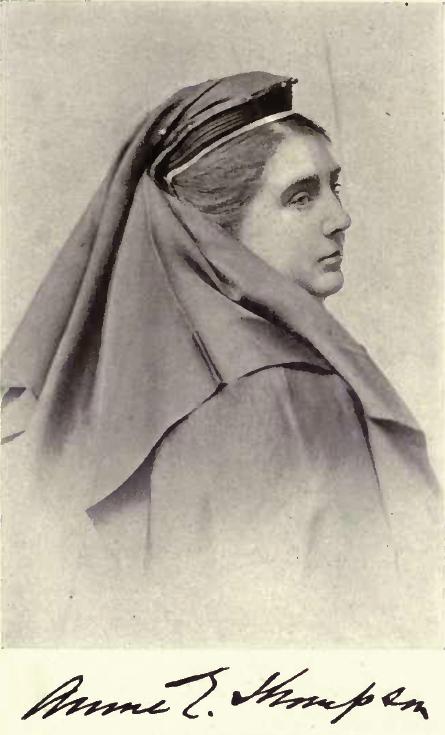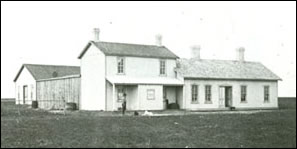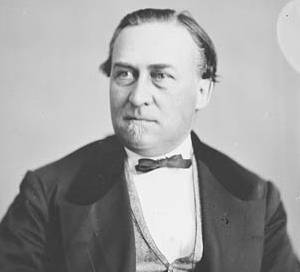|
4th Canadian Ministry
The Fourth Canadian Ministry was the cabinet chaired by Prime Minister Sir John Abbott. It governed Canada from 16 June 1891 to 24 November 1892, including only a year and a half in the middle of the 7th Canadian Parliament. The government was formed by the old Conservative Party of Canada. Ministries *Prime Minister **16 June 1891 – 5 December 1892: Sir John Abbott *Minister of Agriculture **16 June 1891 – 5 December 1892: John Carling *Minister of Customs **16 June 1891 – 25 January 1892: Mackenzie Bowell **25 January 1892 – 5 December 1892: Joseph-Adolphe Chapleau *Minister of Finance **16 June 1891 – 5 December 1892: George Eulas Foster *Receiver General of Canada **16 June 1891 – 5 December 1892: The Minister of Finance (Ex officio) ***16 June 1891 – 5 December 1892: George Eulas Foster * Superintendent-General of Indian Affairs **16 June 1891 – 5 December 1892: The Minister of the Interior (Ex officio) ***16 June 1891 – 17 October 1892: Edgar Dewdney ** ... [...More Info...] [...Related Items...] OR: [Wikipedia] [Google] [Baidu] |
John Abbott
Sir John Joseph Caldwell Abbott (March 12, 1821 – October 30, 1893) was a Canadian lawyer and politician who served as the third prime minister of Canada from 1891 to 1892. He held office as the leader of the Conservative Party. Abbott was born in what is now Saint-André-d'Argenteuil, Quebec. He studied law at McGill University and became one of Montreal's best-known lawyers, later returning to McGill as a professor of law and earning a Doctor of Civil Law degree. He was perhaps best known for his successful defence of the perpetrators of the St. Albans Raid. Abbott involved himself in politics from a young age, signing the Montreal Annexation Manifesto in 1849which he later regrettedand winning election to the Legislative Assembly of the Province of Canada in 1860. In the lead-up to Confederation he was a prominent advocate for the rights of English-speaking Quebecers. In the 1867 federal election, Abbott was elected to the new House of Commons of Canada as a memb ... [...More Info...] [...Related Items...] OR: [Wikipedia] [Google] [Baidu] |
Mackenzie Bowell
Sir Mackenzie Bowell (; December 27, 1823 – December 10, 1917) was a Canadian newspaper publisher and politician, who served as the fifth prime minister of Canada, in office from 1894 to 1896. Bowell was born in Rickinghall, Suffolk, England. He and his family moved to Belleville, Ontario, in 1832. When in his early teens, Bowell was apprenticed to the printing shop of the local newspaper, the ''Belleville Intelligencer'', and some 15 years later, became its owner and proprietor. In 1867, following Confederation, he was elected to the House of Commons for the Conservative Party. Bowell entered cabinet in 1878, and would serve under three prime ministers: John A. Macdonald, John Abbott, and John Thompson. He served variously as Minister of Customs (1878–1892), Minister of Militia and Defence (1892), and Minister of Trade and Commerce (1892–1894). Bowell kept his Commons seat continuously for 25 years, through a period of Liberal Party rule in the 1870s. In 1892, Bow ... [...More Info...] [...Related Items...] OR: [Wikipedia] [Google] [Baidu] |
Representative Of The Government In The Senate
The representative of the Government in the Senate (french: représentant du gouvernement au Sénat) is the member of the Senate of Canada who is responsible for introducing, promoting, and defending the government's bills in the Senate after they are passed by the House of Commons. The representative is appointed by the prime minister. The position replaced the leader of the Government in the Senate (french: leader du gouvernement au Sénat), which from 1867 to 2015 was a senator who was a member of the governing party and led the government caucus in the Senate of Canada (whether or not that party held a majority in the Senate). The position of Leader had almost always been held by a Cabinet minister, except briefly in 1926, from 1958 to 63 and from 2013 to the position being discontinued in 2015. The government representative's counterpart on the Opposition benches is the leader of the Opposition in the Senate, who continues to be a member of the Official Opposition politi ... [...More Info...] [...Related Items...] OR: [Wikipedia] [Google] [Baidu] |
John Sparrow David Thompson
Sir John Sparrow David Thompson (November 10, 1845 – December 12, 1894) was a Canadian lawyer, judge and politician who served as the fourth prime minister of Canada from 1892 until his death. He had previously been fifth premier of Nova Scotia for a brief period in 1882. Thompson was born in Halifax, Nova Scotia. He trained as a lawyer and was called to the bar in 1865. Thompson was elected to the Nova Scotia House of Assembly in 1877 as a representative of the Conservative Party. He became the provincial attorney general the following year, in Simon Holmes' government, replaced Holmes as premier in 1882. However, he served for only two months before losing the 1882 general election to the Liberal Party. After losing the premiership, he accepted an appointment to the Nova Scotia Supreme Court. In 1885, Thompson entered federal politics at the personal request of Prime Minister John A. Macdonald, becoming Minister of Justice. In that role he was the driving force behind t ... [...More Info...] [...Related Items...] OR: [Wikipedia] [Google] [Baidu] |
Minister Of Justice (Canada) ''
{{disambiguation ...
Minister may refer to: * Minister (Christianity), a Christian cleric ** Minister (Catholic Church) * Minister (government), a member of government who heads a ministry (government department) ** Minister without portfolio, a member of government with the rank of a normal minister but who doesn't head a ministry ** Shadow minister, a member of a Shadow Cabinet of the opposition ** Minister (Austria) * Minister (diplomacy), the rank of diplomat directly below ambassador * Ministerialis, a member of a noble class in the Holy Roman Empire * ''The Minister'', a 2011 French-Belgian film directed by Pierre Schöller See also *Ministry (other) *Minster (other) *''Yes Minister ''Yes Minister'' is a British political satire sitcom written by Antony Jay and Jonathan Lynn. Comprising three seven-episode series, it was first transmitted on BBC2 from 1980 to 1984. A sequel, ''Yes, Prime Minister'', ran for 16 episodes fro ... [...More Info...] [...Related Items...] OR: [Wikipedia] [Google] [Baidu] |
Minister Of The Interior (Canada)
The Minister of the Interior was the member of the Canadian Cabinet who oversaw the Department of the Interior, which was responsible for federal land management, immigration, Indian affairs, and natural-resources extraction. The position was created in 1873 by Statute 36 Victoria, c. 4, to replace the Secretary of State for the Provinces. The Act designated the Minister as ''ex officio'' the Superintendent-General of Indian Affairs. From 30 March 1912 to 9 February 1913, and from 31 December 1919 to 6 August 1930, the Minister of the Interior was also designated ''ex officio'' the Minister of Mines. It was superseded in 1936 by the Minister responsible for Indian Affairs and Minister of Mines and Resources. Ministers Key: See also * Secretary of State for the Provinces - post preceding the Minister of Interior * Secretary of State for Canada References External links * {{cite web, url=http://www2.parl.gc.ca/Parlinfo/Legacy/pages/DepHist.asp?lang=E&Dept=C&SubDept=All ... [...More Info...] [...Related Items...] OR: [Wikipedia] [Google] [Baidu] |
John Costigan
John Costigan (February 1, 1835 – September 29, 1916) was a Canadian judge and politician who served in the House of Commons of Canada and in the Cabinet of several Prime Ministers of Canada. Costigan was born on February 1, 1835, in Saint-Nicolas, Lower Canada, the son of Irish immigrants John Costigan and Bridget Dunn. He was educated at Collège de Sainte-Anne-de-la-Pocatière in Lower Canada from 1850 to 1852. In 1857, he became registrar of deeds and wills for Victoria County in New Brunswick and a judge of the Inferior Court of Common Pleas. He resigned from these posts in 1861 when he was elected to be a member of the 19th New Brunswick Legislative Assembly, representing the electoral district of Victoria. Shanahan (2000). On September 20, 1867, he was elected to the 1st Canadian Parliament as a member of the Liberal-Conservative Party by the riding of Victoria in New Brunswick. He was re-elected nine times, and he became a member of the Liberal Party on Febr ... [...More Info...] [...Related Items...] OR: [Wikipedia] [Google] [Baidu] |
Minister Of Inland Revenue (Canada)
The minister of national revenue (french: ministre du revenu national) is the minister of the Crown in the Canadian Cabinet who is responsible for the Canada Revenue Agency (CRA), as well as the administration of taxation law and collection. The current minister of national revenue is Diane Lebouthillier, who took office on November 4, 2015, following the 2015 federal election. History The responsibility for collecting taxes was first assigned to the minister of inland revenue, formed in 1867. Between 1892 and 1897, during the 7th Canadian Parliament, the portfolio was considered to be only of the ministry, but not the Cabinet, and was thus referred to as the controller of inland revenue during that time. The ''minister of inland revenue'' title returned after 1897 and remained until the office was formally abolished. In 1918, the offices of the minister of inland revenue and the minister of customs were combined into a new position, the minister of customs and inland reve ... [...More Info...] [...Related Items...] OR: [Wikipedia] [Google] [Baidu] |
Thomas Mayne Daly
Thomas Mayne Daly, (August 16, 1852 – June 24, 1911) was a Canadian politician. Born in Stratford, Canada West (now Ontario), the son of Thomas Mayne Daly (1827–1885) and Helen McLaren (Ferguson) Daly, his father was a member of the House of Commons of Canada for the riding of Perth North. His grandfather, John Corry Wilson Daly, was the first mayor of Stratford. He was educated as a lawyer and was called to the Law Society of Upper Canada in 1876. He practised law in Stratford until 1881. In 1881, he moved to Brandon, Manitoba and practised law in partnership with George Robson Coldwell. In 1882, he was elected the first mayor of Brandon. During his first six-month term, Daly initiated a civic development program which allowed for raising $150 000 through debentures. He resigned as Mayor in December 1882. In 1884 he was re-elected as the Mayor of Brandon. In 1887, Daly was elected to the Canadian House of Commons in the riding of Selkirk as a Liberal-Conser ... [...More Info...] [...Related Items...] OR: [Wikipedia] [Google] [Baidu] |
Edgar Dewdney
Edgar Dewdney, (November 5, 1835 – August 8, 1916) was a Canadian surveyor, road builder, Indian commissioner and politician born in Devonshire, England. He emigrated to British Columbia in 1859 in order to act as surveyor for the Dewdney Trail that runs through the province. In 1870, Dewdney decided to take up a role in Canadian government. In this year, he was elected to the Legislative Council of British Columbia as a representative form the Kootenay region. In 1872, he was elected as a member of Federal Government for the Yale region representing the Conservative party. He was reelected to this position in 1874 and again in 1878. Dewdney served as Lieutenant Governor of the North-West Territories from 1879 to 1888, and the fifth Lieutenant-Governor of British Columbia from 1892 to 1897. Additionally, he served as the Indian commissioner in the North-West Territories from 1879 until 1888. In 1897, Dewdney retired from politics and began working as a financial agent until ... [...More Info...] [...Related Items...] OR: [Wikipedia] [Google] [Baidu] |
Minister Of Crown–Indigenous Relations
The minister of Crown–Indigenous relations (french: ministre des relations couronne-autochtones) is a minister of the Crown in the Canadian Cabinet, one of two ministers (the other being the minister of northern affairs) who administer Crown-Indigenous Relations and Northern Affairs Canada (CIRNAC), the department of the Government of Canada which is responsible for administering the ''Indian Act'' and other legislation dealing with "Indians and lands reserved for the Indians" under subsection 91(24) of the ''Constitution Act, 1867''. The minister is also more broadly responsible for overall relations between the federal government and First Nations, Métis, and Inuit. Marc Miller has been the present minister of Crown–Indigenous relations since October 26, 2021. The current version of the position was created alongside the minister of Indigenous services, who administers Indigenous Services Canada, the department responsible for health care, water, and other services to I ... [...More Info...] [...Related Items...] OR: [Wikipedia] [Google] [Baidu] |
Receiver General For Canada
The receiver general for Canada (french: receveur général du Canada) is responsible for making payments to the Government of Canada each fiscal year, accepting payments from financial institutions and preparing the Public Accounts of Canada, containing annual audited financial statements of the Government of Canada. The receiver general deposits and withdraws funds from the Consolidated Revenue Fund of Canada. The minister of public services and procurement is the receiver general for Canada. The ''Department of Public Works and Government Services Act, 1996'' states: "In the Minister's capacity as Receiver General, the Minister shall exercise all the powers and perform all the duties and functions assigned to the receiver general by law." Receivers General The first holder was Walter Murray, who was related to then Governor of Quebec James Murray from 1764. Murray was succeeded by Sir Thomas Mills from 1765 to 1777. Mills was often absent thus his office was held in acting ... [...More Info...] [...Related Items...] OR: [Wikipedia] [Google] [Baidu] |

.jpg)


